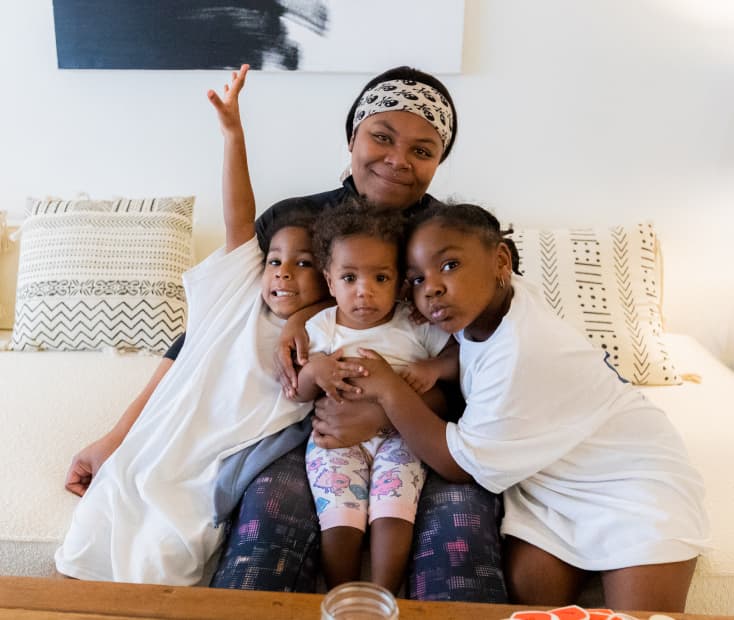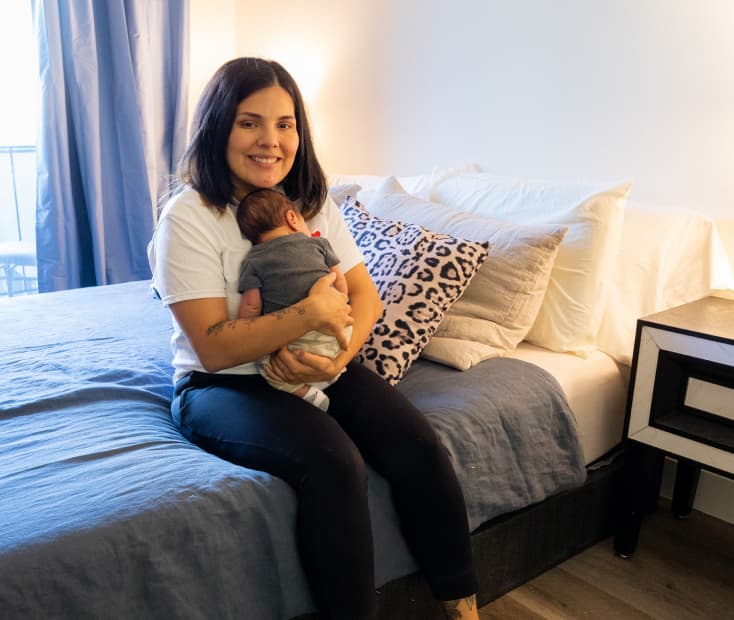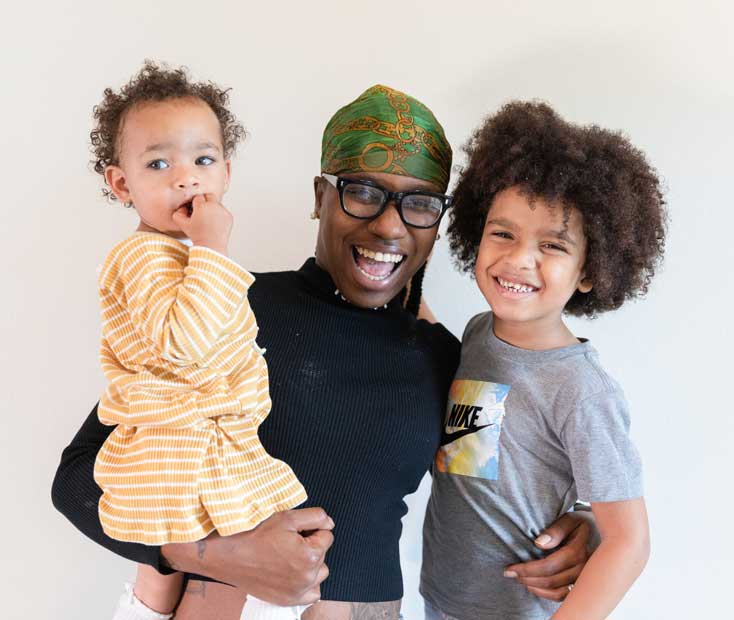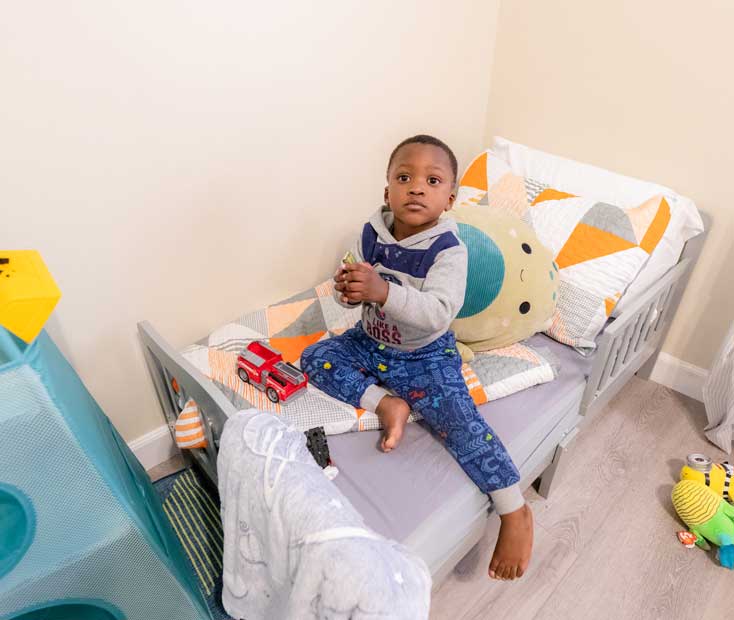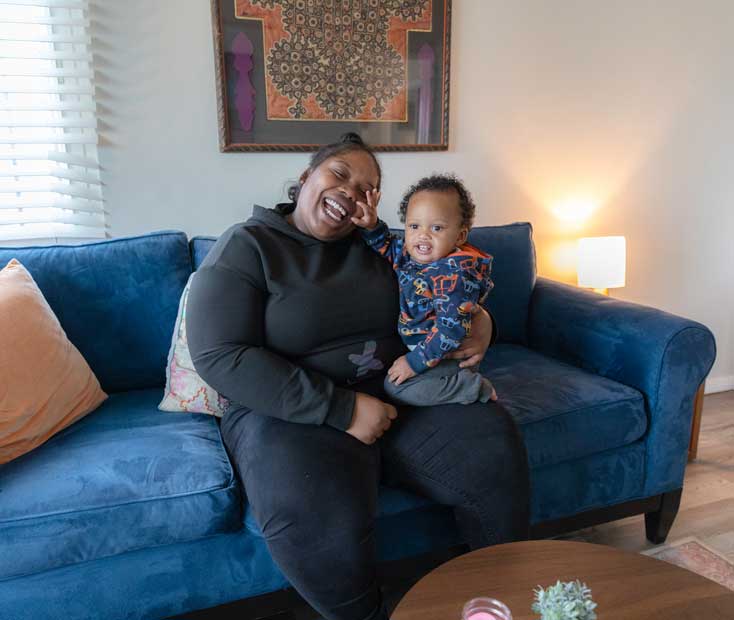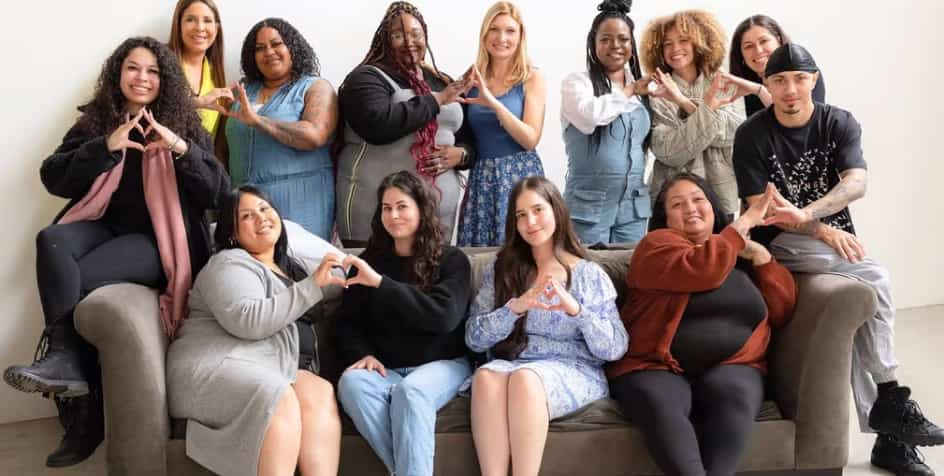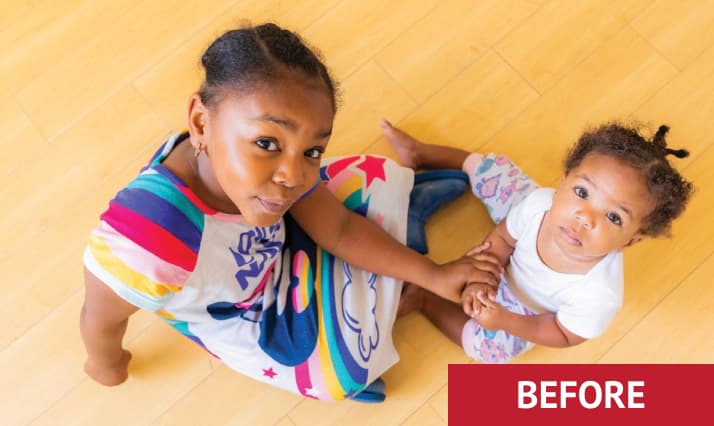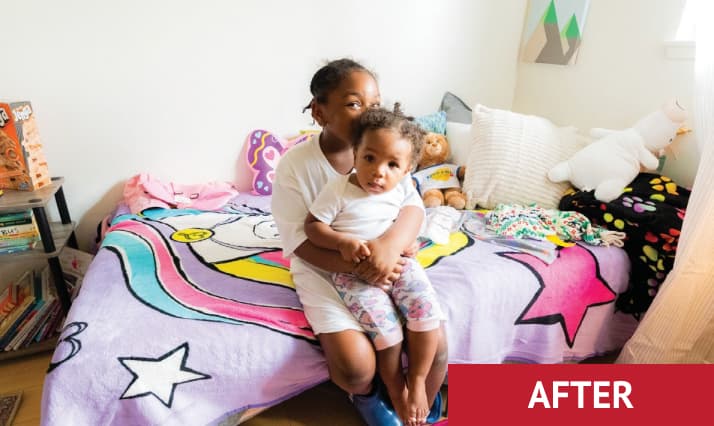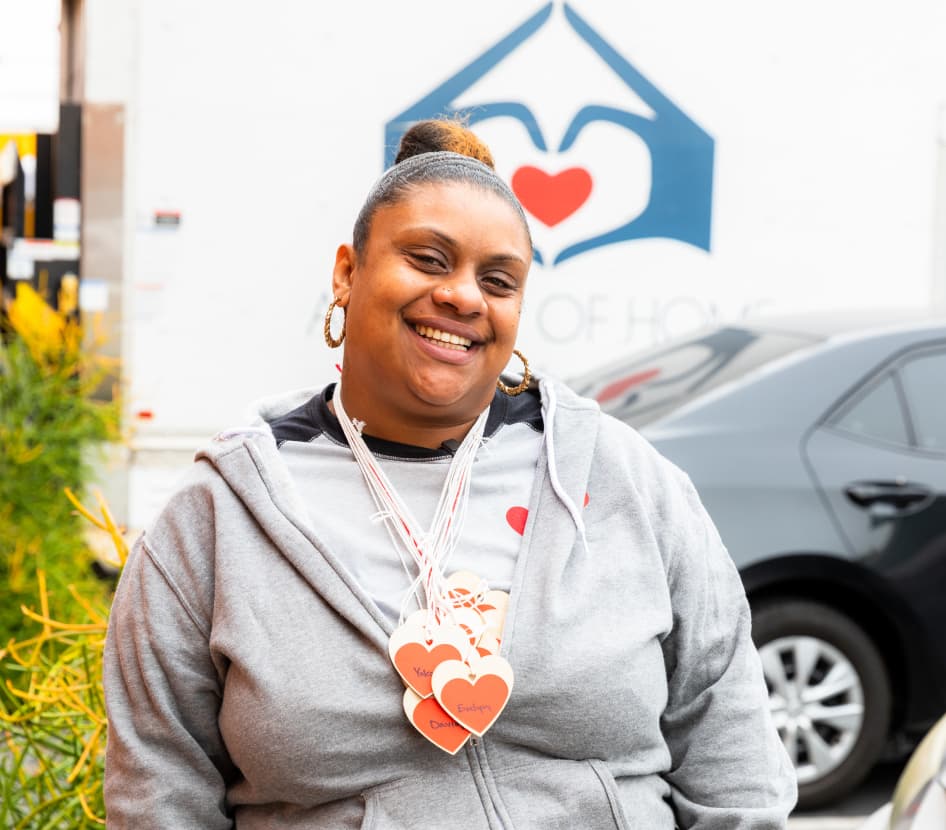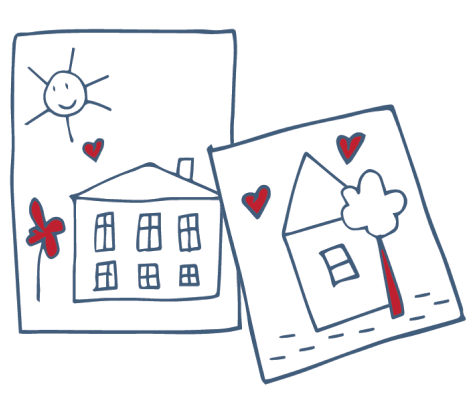ASOH does not have an age limit.
ASOH supports any former foster youth in creating their first-ever home. Harnessing beautifully donated furniture and home goods, volunteers create inspiring homes in only 90 minutes. ASOH introduces recipients to a community of care and access to ongoing resources. Alumni achieve a sustainable tenancy, dignity, self-worth & a foundation from which they can thrive.
Applicants must be working or going to school (or a combination of work and school) for at least 30 hours per week. Should an applicant not qualify we will refer the individual to programs to ensure they do meet our requirements.
When an applicant does not yet have a home, we help them secure housing vouchers through county programs and/ or introduce them to a budding that is specifically accepting ASOH recipients.

